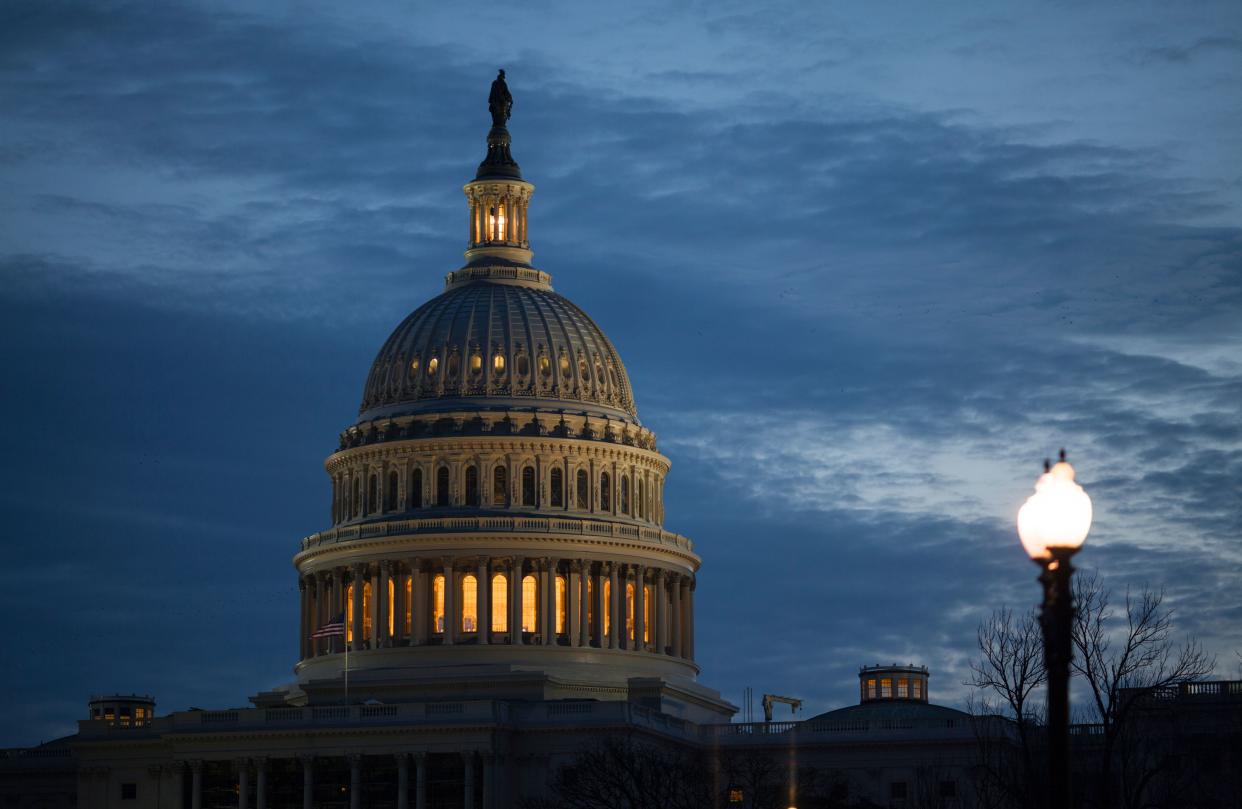A look at what services will – and won't – be interrupted if there is a government shutdown

WASHINGTON – The third federal government shutdown of Donald Trump’s presidency may be only days away.
A quarter of the government will run out of funding and will close at midnight Friday unless Congress and the White House reach an agreement to keep things operating.
So what will really shut down?
Six of the federal departments, including Defense, already have had their budgets approved and won’t be impacted.
But nine other departments and dozens of agencies have been operating under a short-term spending plan that will expire at 11:59 p.m. Friday. Funding for those departments will lapse unless Congress approves their budgets or provides another short-term extension.
That will trigger a partial government shutdown, meaning that all but essential operations in those departments will be closed and some 800,000 federal employees will be furloughed or forced to work without pay until the standoff is resolved.
Departments impacted are Agriculture, Commerce, Justice, Homeland Security, Interior, State, Transportation, Treasury and Housing and Urban Development, as well as several smaller agencies.
What services will be interrupted?
State and local farm service centers operated by the Agriculture Department would close, which means that no staff would be available to answer questions or assist farmers in signing up for new programs under the Farm Bill recently approved by Congress, according to a memo prepared by Democrats on the Senate Appropriations Committee.
National parks could possibly close or offer just limited services. During a shutdown last January, gates at national parks remained open for people to enter but few staff were on hand to protect visitors and park resources. Buildings, such as visitor centers, were shuttered, and sometimes that included restrooms, according to the National Parks Conservation Association.
More than 30 million small businesses would no longer have access to federally assisted loans and technical assistance since Small Business Administration guarantees to back loans would freeze.
Americans looking to buy a new home or refinance a mortgage insured by the Federal House Administration would be put on standby.
Civil litigation, payments to victims and training for state and local law enforcement would stop during a shutdown.
How will federal workers be affected?
More than 420,000 federal workers who provide essential services will be forced to work without pay, according to Democrats’ memo.
That includes 41,000 federal law enforcement and corrections officers, such as prisons officials, FBI agents, U.S. marshals and Drug Enforcement Administration workers. Also affected will be most customs and border patrol agents, Coast Guard employees, Transportation Security Administration officials, federal firefighters and weather service forecasters.
Another 380,000 federal workers will be furloughed, including most of workers at Commerce, NASA, the National Park Service, the Forest Service and Housing and Urban Development. Roughly a third of federal transportation workers will be furloughed, as will some 52,000 Internal Revenue Service workers.
What won’t be affected?
–The mail. The Postal Service is an independent agency and won't be impacted in any government shutdown.
–Travel. Air-traffic controllers still will be on the job even if there is a shutdown, and customs and border agents will continue working at border crossings. Amtrak, a government-owned corporation, also will operate as usual.
–Social Security checks. Shutdown or not, Social Security benefits still go out, as will Medicare services and benefits from programs such as the Supplemental Nutritional Assistance Program and Women, Infants and Children for at least as long as some carryover money in the states or the federal accounts are available.
Contributing: Todd Spangler of the Detroit Free Press
This article originally appeared on USA TODAY: A look at what services will – and won't – be interrupted if there is a government shutdown

